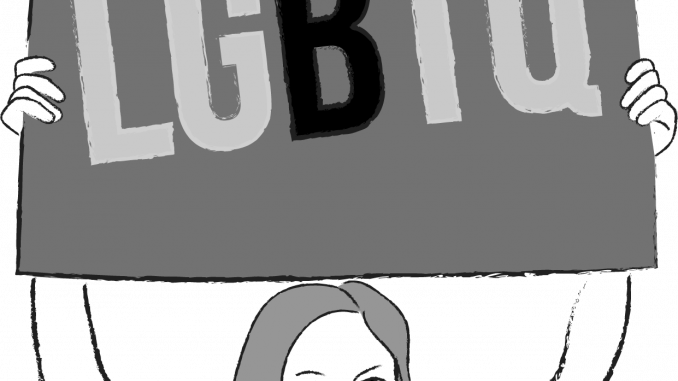
The first time I said “I’m bisexual,” it didn’t feel like a relief.
After I said it, I burst into tears, and my best friend hugged me in the middle of our apartment — a sign of her unrelenting support. And in the kitchen of my childhood home, amongst hugs and affirmations of love, I cried again when I told my parents.
I had finally answered an overwhelming and confusing question that hung over my head since those shy and awkward days of high school — when I thought being gay only meant you could like people who were the same gender as you, not both.
In that moment, when I finally accepted myself, I opened myself up to generations of stigma and persecution. My name instantly became interchangeable with slurs that spitball out of people’s mouths every day without a second thought. I became just another person to put in boxes, to stereotype. And I really only felt one way about dealing with the perceptions others had about my sexual orientation: scared.
But suddenly a lot that happened in my life before I accepted myself made more sense. They became assertions of my own identity.
When a professor listed statistics about bisexual women being one of the least represented populations in the media last semester, my face burned red — my own way of screaming, “I am here.” When a teacher in high school complained to me about the effort it takes to be politically correct for gay students, I snapped back about the importance of all kids feeling comfortable at school — my own way of saying “I matter.” When a peer argued that being gay was a choice, I debated him for hours — my own not-so-quiet way of saying, “I am real.”
Because I denied my identity for such a long time, I hadn’t fully felt the scope of offense warranted by comments like, “Bisexual people are just confused” and “They must be turned on all the time.”
Some may think a higher power needs to rescue me from my homosexuality. And, although they scream “hell for sinners” on the corner, I feel like I’m in some type of purgatory because I’ve realized so many positive things about accepting myself since I came out.
Now, when I see B in LGBTQ, I feel recognized. When I see the acronym written in bold letters on cardboard signs and hear it chanted at marches, I feel supported. When I read about the advocacy efforts of people like Harvey Milk, I feel gratitude. When I look in the mirror, it’s recognition.
This game of tug of war has been confusing — a recent theme in my life.
One of the biggest realizations I’ve gathered from coming out is there’s no easy and carefree destination to reach. In the future, there will be questions asked of me that I won’t want to answer or ignorance I can’t swallow. But I am what I am, always.
And that certainty has been the most blissful thing yet.
Grace Shallow can be reached at grace.shallow@temple.edu or on Twitter @Grace_Shallow.


Be the first to comment